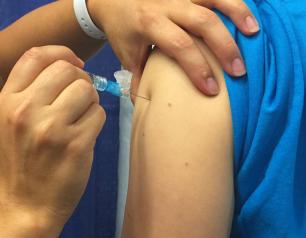40 Results
A Change in Drug Regimen is Associated with Temporary Increases in Dormant HIV
Switching to an antiretroviral therapy (ART) regimen containing the drug dolutegravir was associated with a significant temporary increase in reservoirs of latent HIV, according to a new analysis from a study in Uganda. HIV reservoirs are cells where HIV lies dormant and cannot be reached by the immune system or ART. They are central to HIV’s persistence, preventing current treatments from clearing the virus from the body.
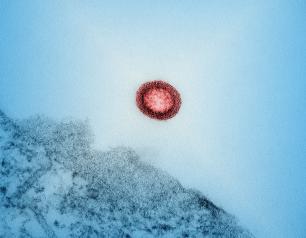
HIV Treatment Research and Key Takeaways: Dr. Dieffenbach’s Final Update from CROI 2024 (VIDEO)
On March 6 as the 2024 Conference on Retroviruses and Opportunistic Infections (CROI) was winding down, HIV.gov spoke with Carl Dieffenbach, Ph.D., director of NIAID's Division of AIDS, about highlights of long-acting HIV treatment research discussed at the conference. He spoke with Brian Minalga, M.S.W., deputy director of the NIH-supported Office of HIV/AIDS Network Coordination. Watch their conversation.
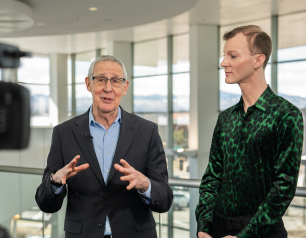
Promising Outcomes with HIV Treatment Started Promptly After Birth: Deborah Persaud Presents at CROI 2024 (VIDEO)
On the final day of the 2024 Conference on Retroviruses and Opportunistic Infections (CROI), HIV.gov spoke with Deborah Persaud, M.D., professor of Pediatrics at the Johns Hopkins University School of Medicine and director of the Division of Pediatric Infectious Diseases at Johns Hopkins Children's Center, who reported findings from a study about whether very early initiation of antiretroviral therapy (ART) may limit the establishment of HIV reservoirs in newborns, potentially enabling ART-free remission. Dr. Persaud spoke with Catey Laube of NIAID's Office of Communications and Government Relations. Watch their conversation.

Doxy-PEP, HIV Vaccines and Community-Engaged Research: Discussions with Carl Dieffenbach and LaRon Nelson at CROI 2024 (VIDEO)
During the first full day of presentations at the 2024 Conference on Retroviruses and Opportunistic Infections, HIV.gov spoke with Carl Dieffenbach, Ph.D., director of NIAID’s Division of AIDS, and LaRon Nelson, Ph.D., R.N., F.N.P., F.N.A.P., F.N.Y.A.M., F.A.A., professor and associate dean at the Yale School of Nursing. They discussed Doxy-PEP for STI prevention, HIV vaccines, community engagement in research, and more. Watch their discussions.
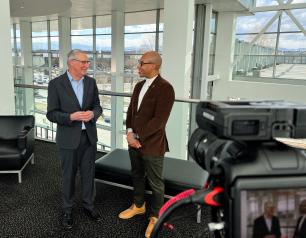
Novel CMV Vaccine Generates Stronger Response in Key Immune Cells Than Previous Candidate
A messenger RNA (mRNA) vaccine designed to prevent human cytomegalovirus (CMV) elicited long-lasting CMV-specific responses from several types of immune cells, outperforming a previous vaccine concept in multiple measures in a NIAID-supported laboratory study. The findings were published in the Journal of Infectious Diseases.
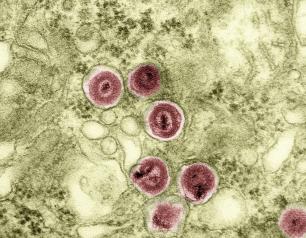
In People with Stable Lupus, Tapering Immunosuppressant Linked to Low Flare Risk
In people with a form of lupus called systemic lupus erythematosus (SLE), the risk for a severe flare-up of disease was low for both individuals who tapered off long-term immunosuppressive therapy and those who remained on it, a clinical trial has found. The National Institute of Allergy and Infectious Diseases (NIAID), part of the National Institutes of Health, sponsored and funded the trial. The findings were reported today in the journal The Lancet Rheumatology.

Antibodies Passed through Placenta May Improve Survival for Infants with HIV
Certain antibodies that pass through the placenta are associated with the improved survival of infants who acquire HIV through nursing. A Kenya-based study observed that preexisting antibodies that target a region of a protein on HIV's surface were correlated with delayed HIV acquisition in infants exposed to the virus as well as a lower amount of virus circulating in the blood of infants who acquired HIV.
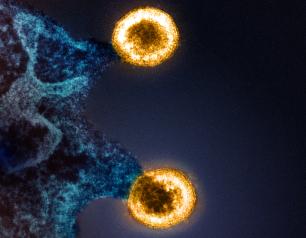
NIAID Team Explores Metabolism in Determining Infection Severity
The route a pathogen takes in causing infection can determine the severity of disease. NIAID scientists are looking at metabolism to determine how and why there is a difference.
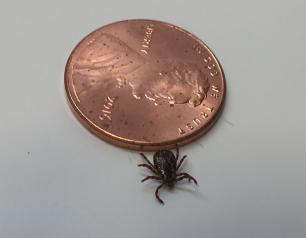
NIAID’s VRC, S. Africa’s Afrigen Kick Off Vaccine-Sharing Efforts
A team of vaccine production experts from South Africa recently finished training with NIAID Vaccine Research Center scientists. Their objective: to globally produce vaccines against a list of troubling infectious diseases.
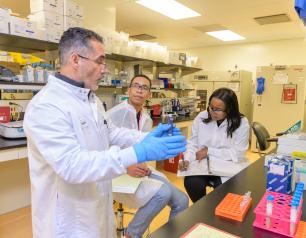
Study Examines the Association of Frailty, Age, and Biological Sex with COVID-19 Vaccine–Induced Immunity in Older Adults
Understanding immunosenescence is crucial for vaccine development and implementation in older populations to induce a robust immune response for protection against infectious disease. This study characterized the intersection of sex and aging on the antibody response to the Moderna and Pfizer COVID-19 vaccines.
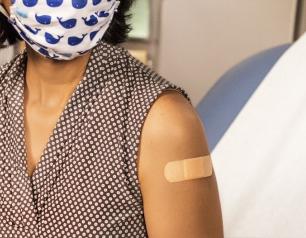
A Secret to Health and Long Life? Immune Resilience, NIAID Grantees Report
Do you know some people who almost never get sick and bounce back quickly when they do, while other people frequently suffer from one illness or another? NIAID-supported researchers have pinpointed an attribute of the immune system called immune resilience that helps explain why some people live longer and healthier lives than others.
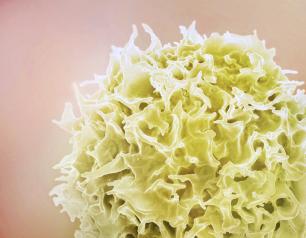
Universal Influenza Candidate Vaccine Performs Well in Phase 1 Trial
Developing a universal influenza vaccine is a significant priority for NIAID scientists. Two new studies describe a unique candidate developed by NIAID's Vaccine Research Center that performed well in a Phase 1 clinical trial.
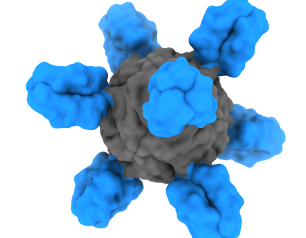
NIAID-Supported Study Provides Stronger Evidence of Link Between RSV and Childhood Asthma
The study found that infants who were not infected with RSV in the first year of life had a 26% lower risk of asthma at 5 years of age than those who were infected with RSV as infants.
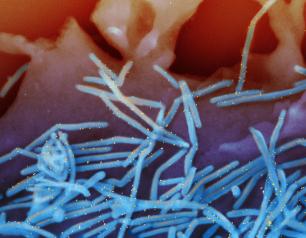
NIAID-led Work Identifies Bacteria Signaling for Nerve Repair in Mice
A team of NIAID-led researchers has identified a mechanism in mice in which the immune system and commensal bacteria help repair damaged sensory neurons within the skin. They hope their findings could lead to therapies that stimulate recovery in people following skin injury and limit damage from chemotherapy and chronic diseases.
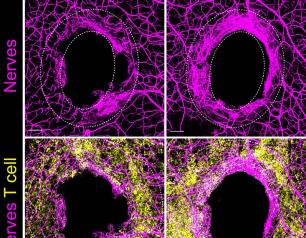
NIAID-Supported Studies Identify Universal Predictors of Antibody Response to Vaccination
Two recently published studies explain why some people respond better to vaccines than others and could guide the development of new strategies to enhance the antibody response to vaccination.
